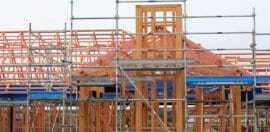Government inquiry launches to find answers to homelessness

17 February 2020 at 4:38 pm
Homelessness organisations are being encouraged to have their say in the inquiry
A federal parliamentary inquiry seeking to understand how people become homeless and how to prevent it has launched, as the number of people experiencing homelessness in Australia reaches record levels.
Launched on Thursday, the House of Representatives Standing Committee on Social Policy and Legal Affairs inquiry aims to find better ways to support people at risk of and experiencing homelessness.
More than 116,000 people were estimated to be homeless in Australia on Census night in 2016, up from 102,439 in 2011.
This figure includes people living in severely crowded housing, temporary and unstable accommodation, and rough sleepers.
Kate Colvin, Everybody’s Home spokesperson, told Pro Bono News that while there had already been a lot of work done to identify the causes of homelessness, it was an issue that had rapidly changed over time as the housing system worsened.
“This will be an opportunity for the government to get an up-to-date picture of what the issues driving homelessness in Australia are,” Colvin said.
The chair of the committee, Andrew Wallace, said there were a number of factors contributing to a person becoming homeless, and he hoped the inquiry would point the committee in the right direction on how to solve the issue.
Groups such as the Council to Homeless Persons and the Everybody’s Home campaign have long advocated for a “housing first” approach, and argue that the only way to reduce the rate of homelessness is by making sure people have secure and affordable housing.
Colvin said she hoped the inquiry would help the government understand the close link between the lack of social housing and the rising rates of homelessness.
“For most people, the issue is just that there’s not a place they can afford in the rental market,” she said.
Wallace urged community groups across the country to have their say.
“The committee is particularly interested in hearing from communities around Australia about approaches that are working well, and ideas for improvement,” Wallace said.
The committee will accept written submissions until 9 April 2020.







